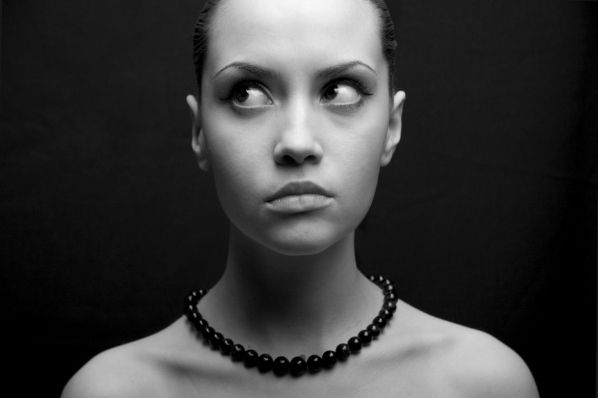Moody Bitches–it's the new Lean In.
That is to say, New York psychiatrist Julie Holland's just-released book, subtitled The Truth About the Drugs You’re Taking, the Sleep You’re Missing, the Sex You’re Not Having and What’s Really Making You Crazy," is already shaping up to be the most highly discussed book of the year–at least in feminist circles.
Holland's argument is that women's widely noticed "moodiness"–their up-and-down emotions ranging from crankiness to insomnia to depression to PMS to "anxiety disorder" (essentially excessive worrying) to the impetuses behind such phenomena as eating disorders and wildly fluctuating weight gains and losses–are a feature, not a bug, of the female psyche.
She writes: “[B]eing sensitive, caring deeply, and occasionally being acutely dissatisfied” is actually a biological source of power for women, who ought to be channeling their protest against a society that expects them to excel at careers while shouldering the burden of primary responsibility for household maintenance and childcare. Instead of fighting back against their bosses, husbands, and other oppressors, Holland writes, women simply down the "happy pills" urged onto them by Big Pharma–anti-depressents, Xanax-clones, or whatever they can talk their doctors into prescribing for them. "“We decided that what was needed was calm confrontation, not more medication," Holland writes about the counsel she gave one of her patients.
Now, the statistics that Holland cites ought to tell you something: One in four women in America now takes some form of psychiatric medication, compared with one in seven men. Furthermore, women are twice as likely to be diagnosed with depression and anxiety disorder as men.
What does this mean? That women really are less emotionally stable then men? That women run to doctors more frequently? Well, we all know that–so maybe it means that women are more conformist, more docile when it comes to taking orders from authority figures.
And it's these latter implications–that women might actually be fundamentally different from men in many biological and psychological ways because their brains are wired differently–that has feminists aghast. In a review of the book for the Washington Post, Brigid Schulte accuses Holland of slanting her argument toward "gender essentialism: the notion that women are biologically set up to feel emotion and that men are just lunks."
Well, we can't have that–because it's a basic tenet of feminism that the sexes are exactly identical, except that men are conditioned to be "better at masking" their emotions, as Schulte writes.
In a Slate dialogue Hanna Rosin thinks that women reach for the Xanax because maybe their bosses don't like it when people burst into tears in the office instead of buckling down to work:
Maybe women have more pressure on them these days. For upper-class women to excel in every realm, and for single-mom working-class women to keep their families from falling apart. Maybe we all feel the darkness, but men have been socialized to ignore it….Maybe the American workplace has not yet gotten to the point where it can tolerate the idea that workers are human beings who cry and get moody sometimes, and women are making a reasonable decision not to take the risk. Hell, it barely accepts that workers procreate.
In other words, the problem is that jobsite rules don't let people of either sex to have a good cry every now and then.
Holland's basic argument–that women "must be able to be our moody selves" doesn't sound very appealing to people who have to, say, share a boardroom with a bunch of moody women. So you can see why a lot of feminists are upset at her implication that one sex might be generically more suited toward handling high-level jobs than the other. It's kind of letting the cat out of the bag.


